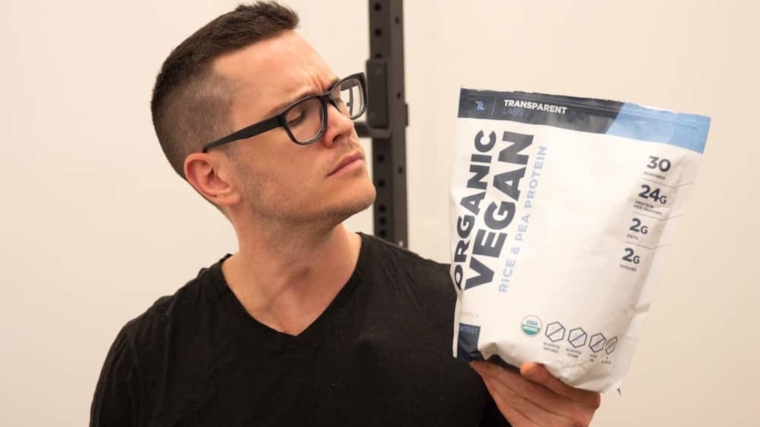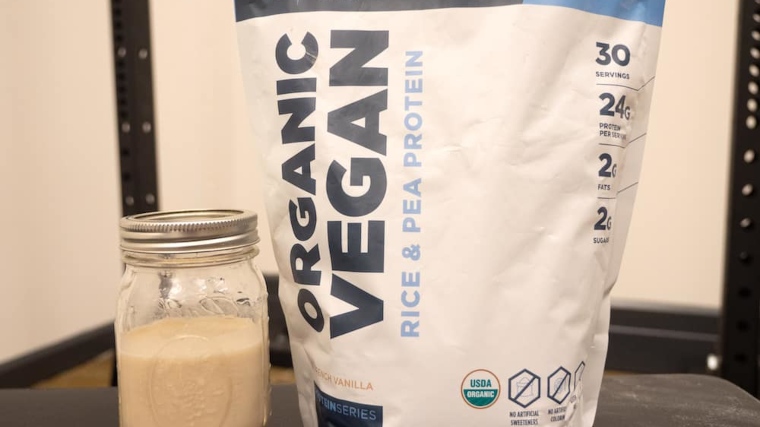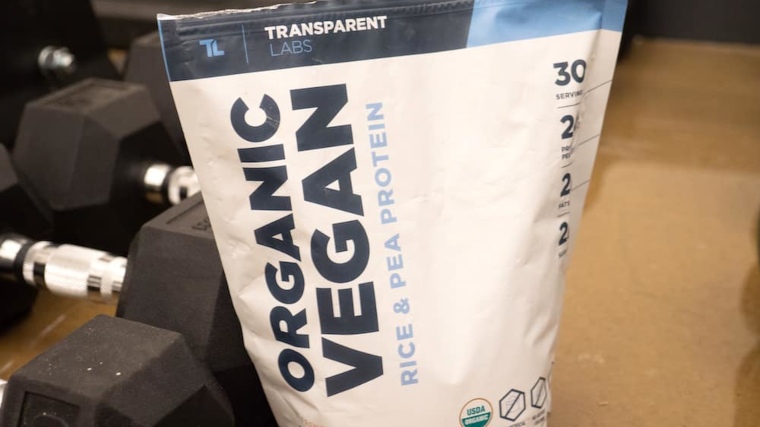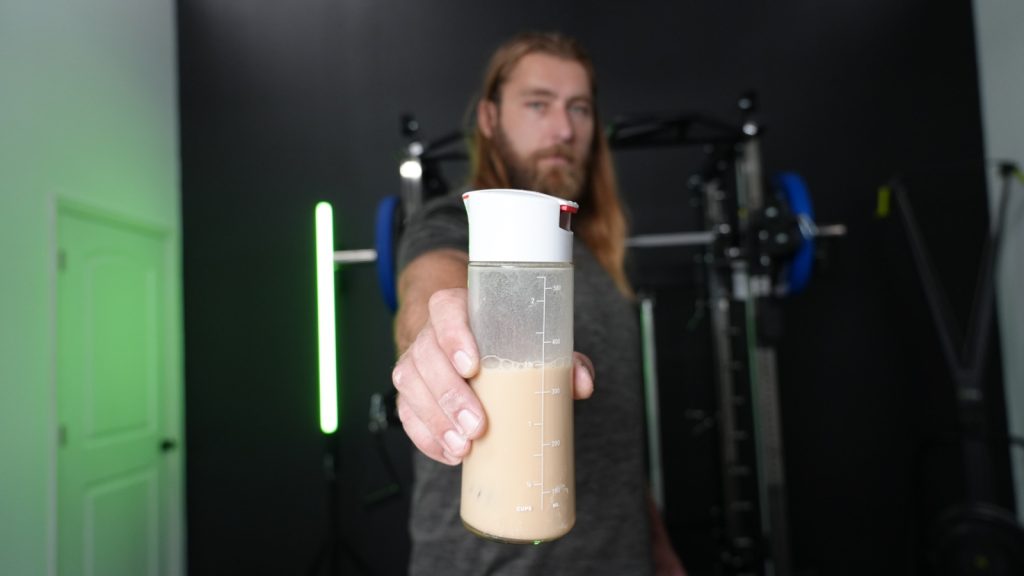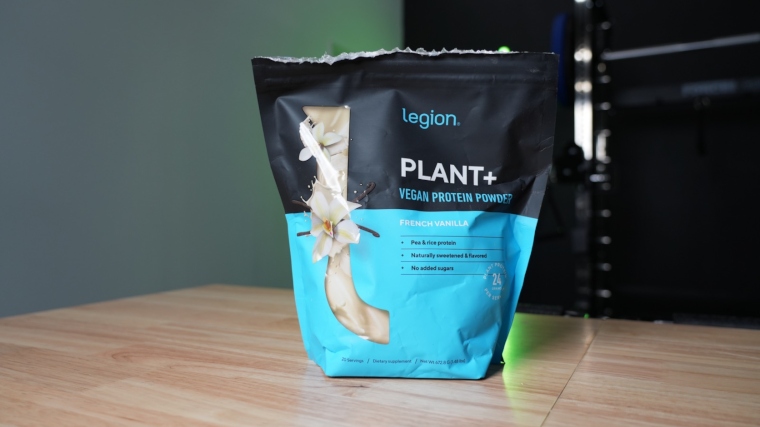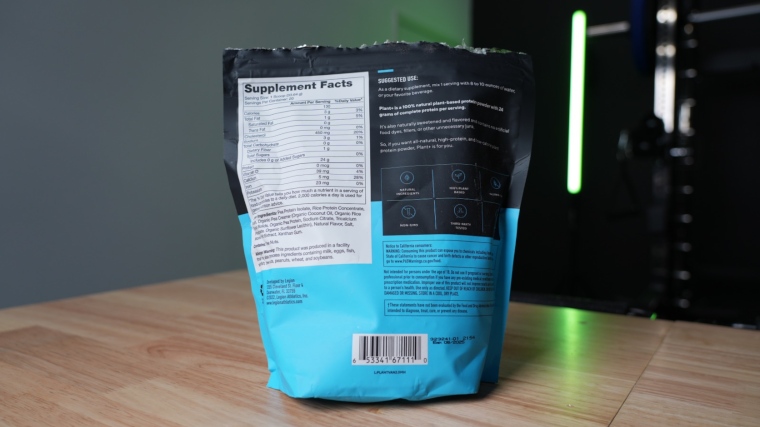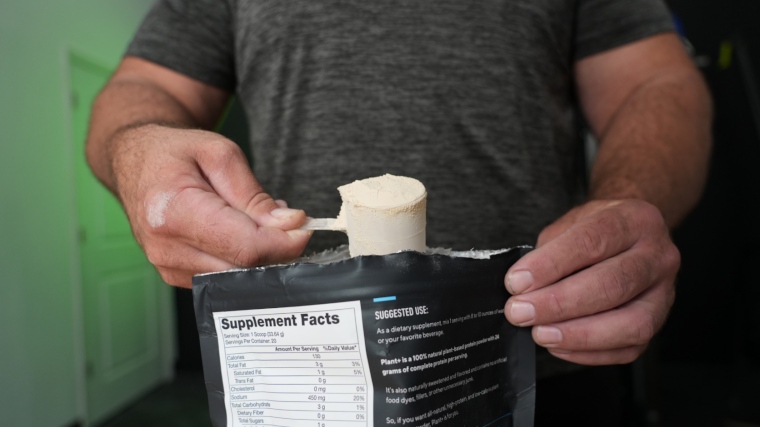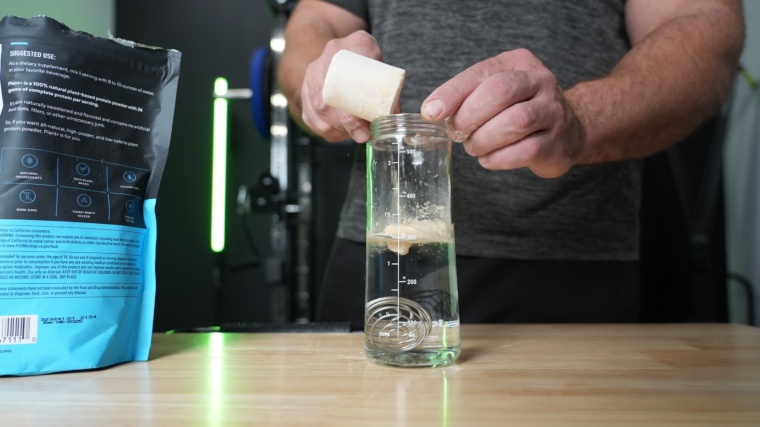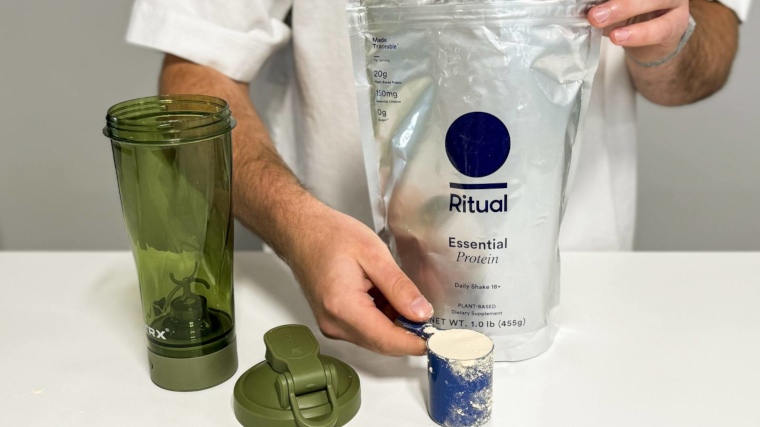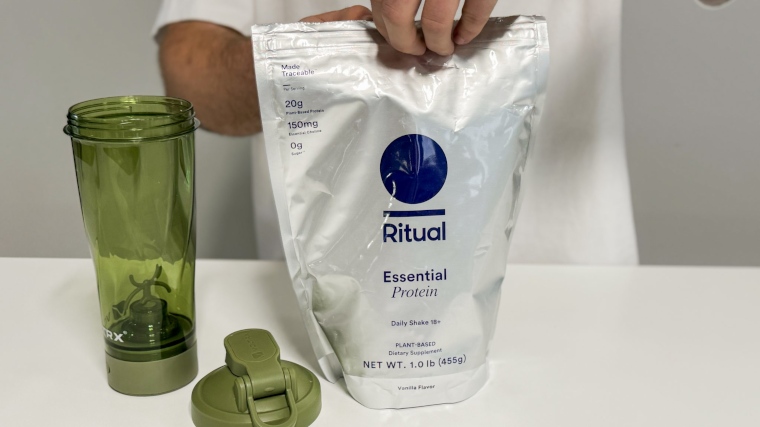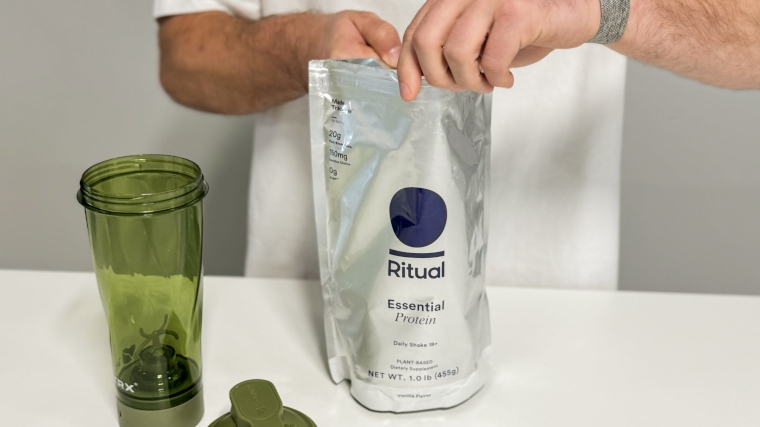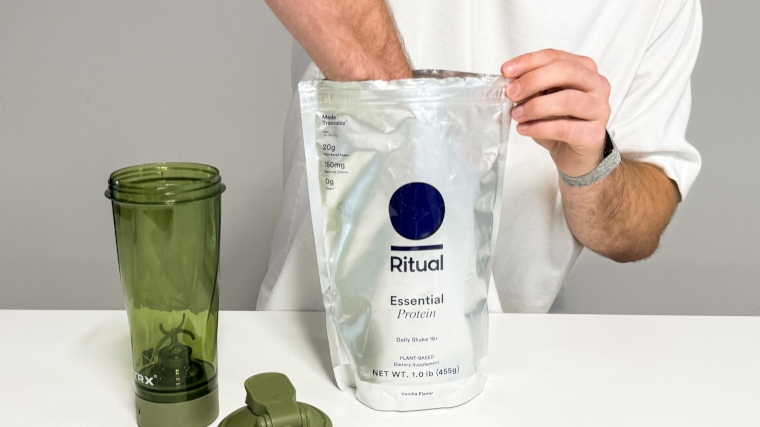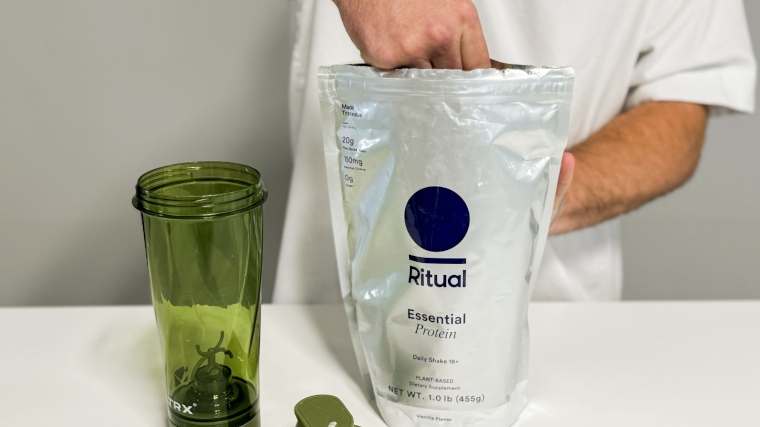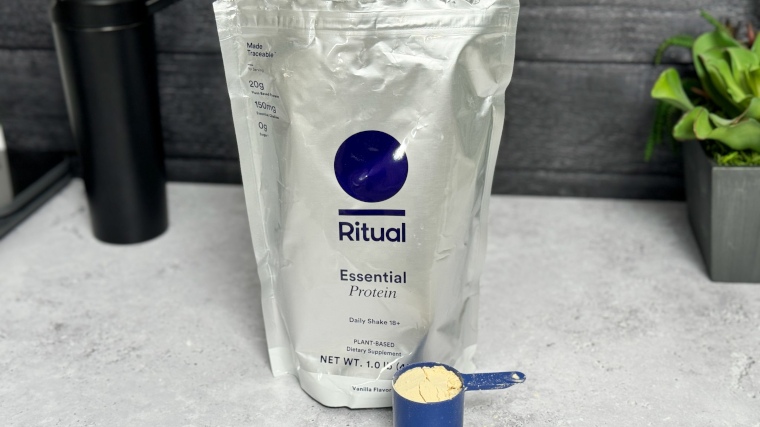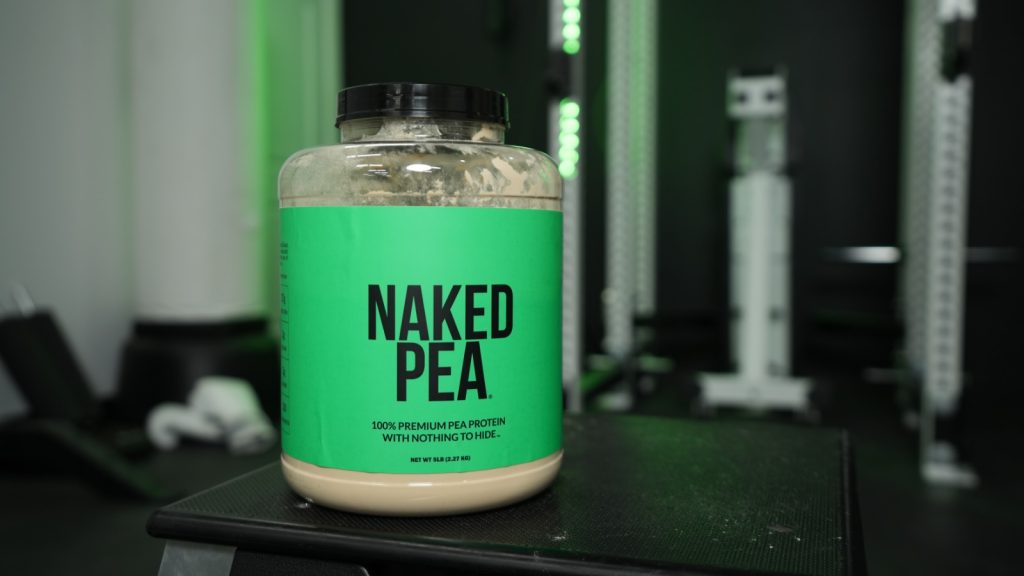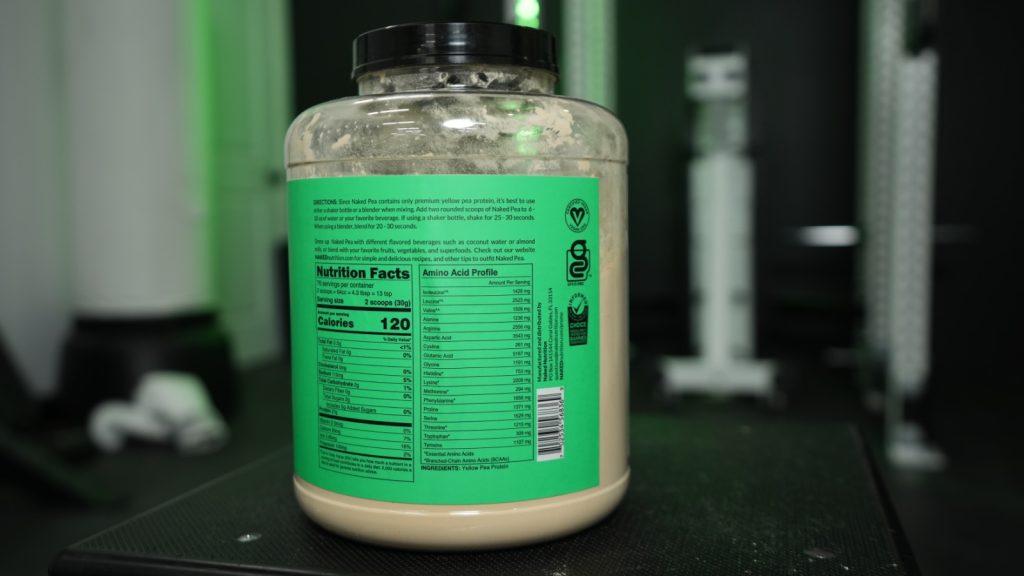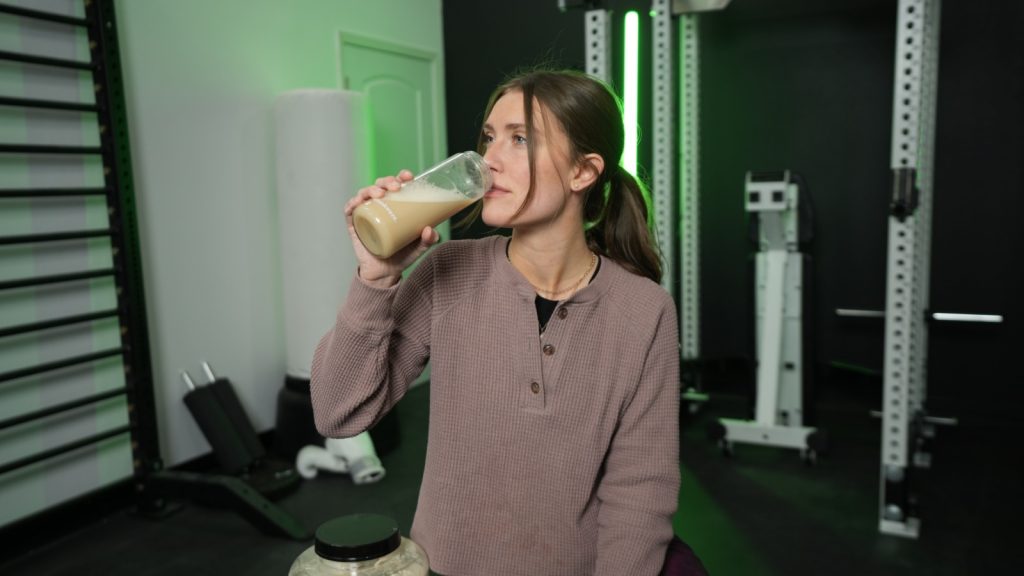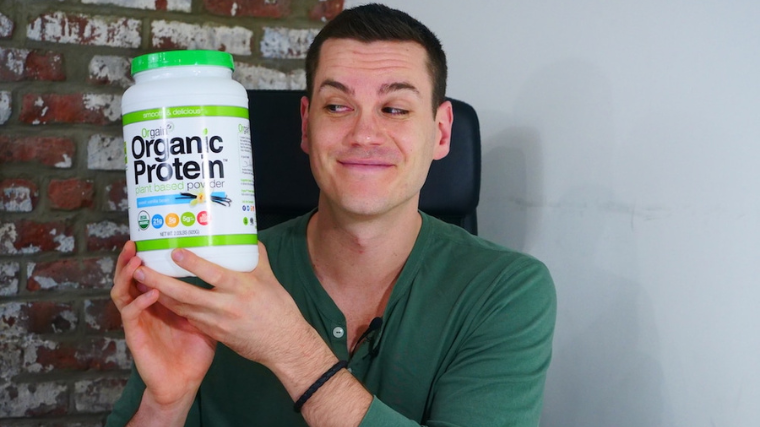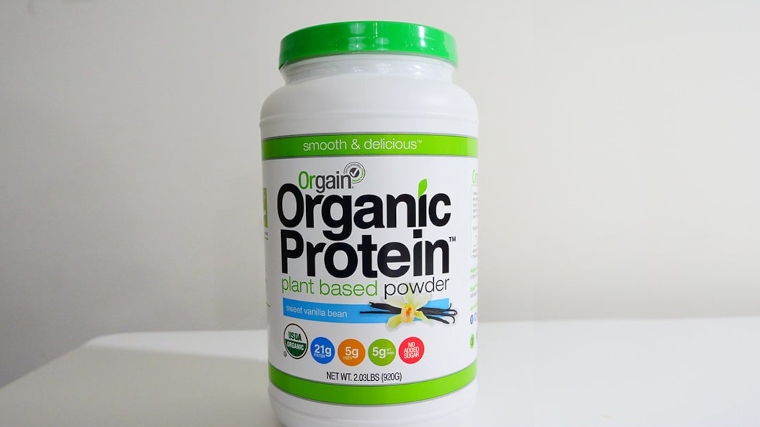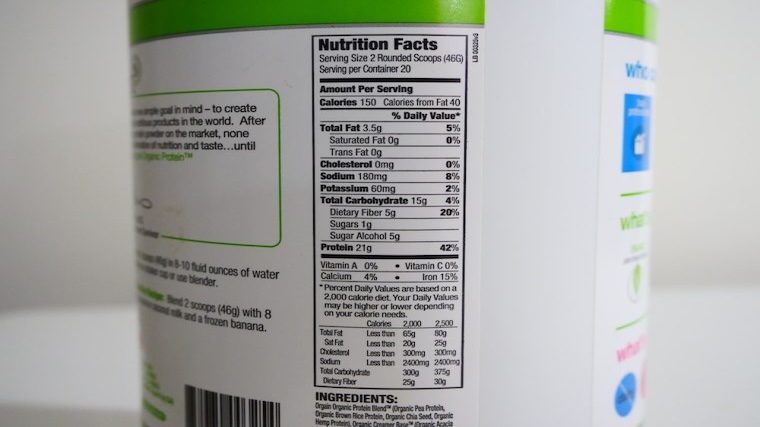If you’re looking for a plant-based protein that’s packed with protein and is also planet-friendly, pea protein powder might just be your new best friend. For those with a dairy-free or plant-based lifestyle, pea protein has earned its place as one of the best protein powders out there, often beating out soy and pumpkin seed protein powders — and even animal-based powders. But with so many brands and options out there, how do you know which are the best pea protein powders?
In this guide, we’re going to dive into the vibrant world of pea protein powders. Here at BarBend, our expert team of nutrition and fitness experts have tested over 100 protein powders to bring you the best of the best. You’ll also learn what makes this tiny legume such a powerhouse to how to choose the best one for your specific needs. And of course, we’ve done the hard work of tasting, researching, and ranking the top contenders across various categories. Whether you’re after the best tasting, the most budget-friendly, or the cleanest, we’ve got you covered. So, grab your shaker bottle, and let’s get started!
The 7 Best Pea Protein Powders of 2026
- Best Overall Pea Protein Powder: Transparent Labs Rice & Pea Protein
- Best Budget Pea Protein Powder: Nutricost Organic Pea Protein Isolate
- Best High-Protein Pea Protein Powder: Legion Plant+
- Best Pea Protein Powder for Athletes: Ritual Essential Protein 18+
- Best Tasting Pea Protein Powder: Naked Pea Protein Isolate
- Best Unflavored Pea Protein Powder: Bulk Supplements Pea Protein Isolate
- Best Organic Pea Protein Powder: Orgain Organic Vegan Protein Powder
Editor’s note: The content on BarBend is meant to be informative in nature, but it should not be taken as medical advice. The opinions and articles on this site are not intended for use as diagnosis, prevention, and/or treatment of health problems. It’s always a good idea to talk to your doctor before beginning a new fitness, nutritional, and/or supplement routine. Individual needs for vitamins and minerals will vary.
Best Overall Pea Protein Powder: Transparent Labs Rice & Pea Protein
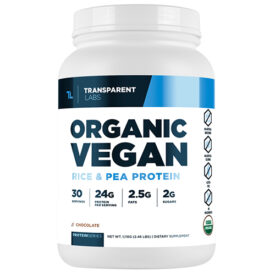
A surprisingly delicious vegan protein powder that's totally free from artificial ingredients and soy, Transparent Labs Organic Vegan Protein contains a 2:1 ratio of rice to pea protein powder, and 4 grams of fiber.
Specs
- Protein Per Serving: 24g
- Calories Per Serving: 130
- Key Ingredients: Organic rice protein concentrate, organic pea protein isolate, natural flavors, salt, stevia
- Third-Party Tested: Yes
- Flavors: French Vanilla, Chocolate
- Added Sugar: 0g
- Price Per Serving: $1.67 or $1.50 with a subscription
Best Budget Pea Protein Powder: Nutricost Organic Pea Protein Isolate
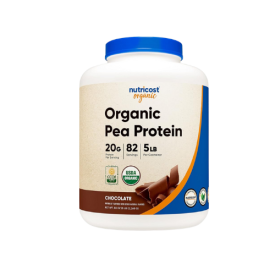
Nutricost Organic Pea Protein is certified organic and comes in a 5-pound tub to make sure you'll have your protein needs met for 82 servings before needing to restock.
Specs
- Protein Per Serving: 20g
- Calories Per Serving: 100
- Key Ingredients: Organic pea protein isolate, organic natural flavors, Himalayan rock salt, organic stevia
- Third-Party Tested: Yes
- Flavors: Vanilla and Unflavored
- Added Sugar: 0 g
- Price Per Serving: $0.38 or $0.31 with a subscription
Best High-Protein Pea Protein Powder: Legion Plant+
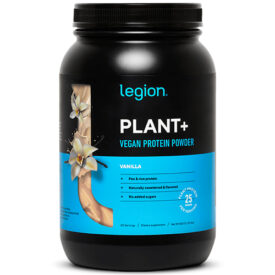
Legion Plant+ Non-GMO Plant-Based Protein Powder has 25 grams of protein per serving, just four grams of carbs, and is packed with vitamins and minerals that plant-based eaters may want more of. Use code "BARBEND" for 20% off!
Specs
- Protein Per Serving: 24g
- Calories Per Serving: 130
- Key Ingredients: Pea protein, brown rice protein concentrate, pea creamer, natural flavors, salt, steviol glycoside, xanthan gum, tree nuts
- Third-Party Tested: Yes
- Flavors: Cinnamon Cereal, Dutch Chocolate, French Vanilla, Salted Caramel, Apple Pie, Mocha Cappuccino
- Added Sugar: 0g
- Price Per Serving: $2.50 and $2.00 with a subscription
Best Pea Protein Powder for Athletes: Ritual Essential Protein 18+
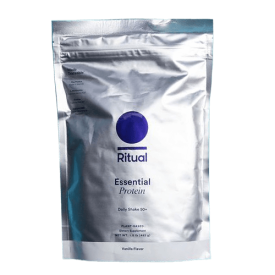
This clean, transparent protein powder relies on organic, non-GMO yellow peas for its 20-gram protein dosage. Additionally, the subscription-based model helps ensure you’re always stocked up to help you meet your nutritional goals day in and day out.
Specs
- Protein Per Serving: 20g
- Calories Per Serving: 115
- Key Ingredients: Organic pea protein, natural flavor, organic MCT oil, xanthan gum, salt, sunflower lecithin, Reb-M, mixed tocopherols, organic monk fruit extract
- Third-Party Tested: Yes
- Flavors: Vanilla
- Added Sugar: 0g
- Price Per Serving: $2.35
Best Tasting Pea Protein Powder: Naked Pea Protein Isolate
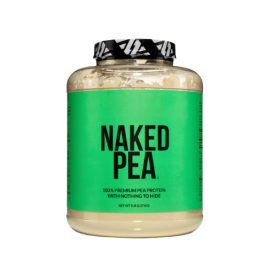
On the search for vegan protein powders, Naked Nutrition Pea Protein has what you need. With 18 grams of pea protein per serving, this powder has a much higher protein level per serving than many other vegan versions out there.
Specs
- Protein Per Serving: 18g
- Calories Per Serving: 120
- Key Ingredients: Yellow pea protein
- Third-Party Tested: Yes
- Flavors: Vanilla, Chocolate, Chocolate Peanut Butter, Double Chocolate, Unflavored
- Added Sugar: 0g
- Price Per Serving: $0.76 or $0.61 with a subscription
Best Unflavored Pea Protein Powder: Bulk Supplements Pea Protein Isolate
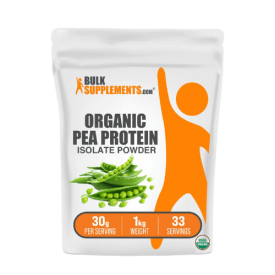
Vegan, organic, and lactose-free, this protein powder provides 21 grams of protein, 2.6 grams of fat, and 0 carbs per serving.
Specs
- Protein Per Serving: 21g
- Calories Per Serving: 110
- Key Ingredients: Pea protein isolate
- Third-Party Tested: No
- Flavors: Unflavored
- Added Sugar: 0g
- Price Per Serving: $1.23 or $1.11 with a subscription
Best Organic Pea Protein Powder: Orgain Organic Vegan Protein Powder
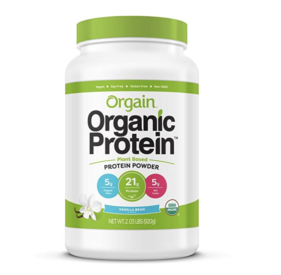
Orgain Organic Protein Plant Based Powder offers 21 grams of protein per serving, along with 5 grams of fiber and net carbs!
Specs
- Protein Per Serving: 21g
- Calories Per Serving: 150
- Key Ingredients: Organic pea protein, organic brown rice protein, organic chia seeds, organic acacia, organic high oleic sunflower oil, organic rice dextrin, organic sunflower lecithin, organic rosemary extract, organic erythritol, organic alkalized cocoa, organic natural flavors, sea salt, organic Reb A (stevia extract)
- Third-Party Tested: No
- Flavors: Creamy Chocolate Fudge, Chocolate Caramel Sea Salt, Chocolate Peanut Butter, Churro Caramel Swirl, Cookies ‘n Cream, Fruity Cereal, Horchata, Iced Coffee, Natural Unsweetened, Peanut Butter, Strawberries & Cream, Vanilla Bean, Vanilla Horchata
- Added Sugar: 0g
- Price Per Serving: $1.90 or $1.61 with a subscription
How We Tested and Chose the Best Pea Protein Powders
The BarBend team is dedicated to bringing you all the information you need so that you can decide which supplement is best for you. Our team is made up of certified trainers, nutrition coaches, and athletes. We also rely on the support of registered dietitians and recent studies to ensure the safety and efficacy of each supplement.
We tested over 100 different protein powders to share the best of the bunch with you. For more information on how we test products, you can read our supplement methodology page. Below, we’ve compiled a brief list of what factors we’re looking at when trying everything.
- Protein: We are testing proteins after all, so it’s important that each protein powder we looked at and tested has a solid amount of protein in each without a bunch of extra additives. We also look at whether protein sources were complete, meaning they contain all essential amino acids.
- Formulation: How the supplement is made and what goes into it is essential in understanding whether you should invest in a supplement or not.
- Third-Party Testing: The Food and Drug Administration (FDA) doesn’t regulate dietary supplements, so third-party testing is essential for transparency, ensuring that these supplements contain what companies advertise and remain free from contaminants.
- Taste: A supplement may have the best ingredients ever, but why would you drink it if it doesn’t taste good? Taste and flavor are essential parts of what makes a protein powder worthwhile, especially pea proteins, which are known to have a distinct (and somewhat odd) flavor and texture.
- Solubility: A supplement’s ability to mix well into water or milk is a critical part of the drinking experience. Pea proteins are known to be difficult to mix thoroughly, so this is definitely something we want to ensure before recommending.
Benefits of Pea Protein Powder
Pea protein comes from legumes, specifically yellow split peas or green peas, and in many ways has the same benefits as its dairy counterpart, whey. The main benefit of both is building and repairing muscle post-workout.
The main characteristic that sets pea protein apart is that it’s free of most allergens. It’s completely vegan, gluten and soy-free (unless, of course, it’s blended with soy protein powder). It’s a great source of protein, especially for those with dietary restrictions. It provides a large amount of protein without being hard on the stomach.
Just because it’s vegan, don’t think that pea protein doesn’t share the general protein powder benefits boasted by its animal-based counterparts. Here we go:
- Easier on the Stomach: Pea protein is easy to digest and is less likely to cause bloating or digestive discomfort. It does digest slower than whey protein powder, but it’s free from common allergens like dairy, gluten, and soy, making it a good option for people with food sensitivities and dietary restrictions.
- Supports Muscle Growth: Similar to whey protein, pea protein is high in protein, which allows for effective muscle growth and recovery post-workout. This makes it a good alternative to whey protein, especially for vegans or those with lactose intolerance. (2)(3)
- Sustainable: Compared to animal-based protein powders, pea protein is more sustainable. Peas require less water and land to grow and have a lower carbon footprint, making pea protein a more environmentally friendly choice. (3)(4)
- Rich in Micronutrients and Antioxidants: Pea protein powder has more iron and fiber in it than whey protein powder. This is particularly beneficial for those with a plant-based diet who may sometimes struggle to get a sufficient amount of iron. (5)(6) Pea protein is also a great source of antioxidants, which help inflammation. (7)
How Much Does Pea Protein Powder Cost?
Let’s face it. Protein is such a nutrient-dense macronutrient that it’s hard to make it well without it being expensive. Fortunately, pea protein is a relatively lower-cost protein than some other sources.
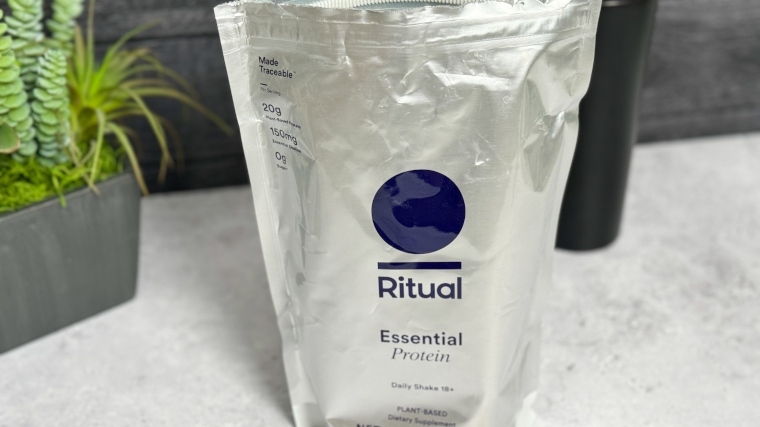
These premium pea protein powders range from $20.96 to $79.99 per tub. It’s important to keep in mind that the serving sizes and added ingredients will dramatically affect the price of each of these protein supplements. You will also see additional savings with a subscription or when ordering in bulk.
| Superlative | Supplement | Price |
| Best Overall Pea Protein Powder | Transparent Labs Rice & Pea Protein | $49.99 or $44.99 with a subscription |
| Best Budget Pea Protein Powder | Nutricost Organic Pea Protein Isolate | $32.95 or $26.36 with a subscription |
| Best High-Protein Pea Protein Powder | Legion Plant+ | $49.99 or $39.99 with a subscription |
| Best Pea Protein Powder for Athletes | Ritual Essential Protein 18+ | $44 |
| Best Tasting Pea Protein Powder | Naked Pea Protein Isolate | $58 or $46.39 with a subscription |
| Best Unflavored Pea Protein Powder | Bulk Supplements Pea Protein Isolate | $20.96 or $18.86 with a subscription and more savings in bulk |
| Best Organic Pea Protein Powder | Orgain Organic Vegan Protein Powder | $37.99 or $32.29 with a subscription |
What to Consider Before Buying Pea Protein Powder
There are many factors to consider before making an informed choice on which pea protein is right for you. The first step is knowing how much protein you should be consuming a day. For an easy way to calculate your needs, check our BarBend’s protein intake calculator:
Protein Intake Calculator
[Related: Protein Intake Calculator]
Essential Amino Acids
While whey protein contains all nine essential amino acids that your body needs, pea protein doesn’t always contain enough of all nine to count as the complete package. (8)(9) These essential amino acids, like the branched-chain amino acids (BCAAs) leucine, isoleucine, and valine are essential for your body’s functioning.
Amino acids provide energy to break down food and aid with digestion, boost the immune system, help the body absorb nutrients, aid hormone production, maintain healthy skin, hair and nails, and help with growing and repairing body tissue and muscle. (10)
They are especially important for those on a plant-based diet because the biggest sources of these essential amino acids come from meat, dairy, and eggs, so supplementing them can be helpful for your overall health if you’re not the most mindful of your food intake.
Combining pea protein with another vegan protein like rice protein powder is the best way to ensure that your protein contains all nine essential amino acids.
According to Leona West Fox, CN, CH, FMCHC, “If a person is taking protein powder specifically to fill any protein gaps in the day and after their workout to maximize protein muscle synthesis, then it’s important to choose protein powder with a higher leucine content. I recommend pea protein in the plant protein category.”
[Related: Pea Protein Benefits]
Added Ingredients & Nutrients
Selecting the pea protein with the best ingredients for you depends on your goals. For example, if you want to lean out or lose weight, selecting a protein powder that is high in protein but little else may be the best choice for you. If you want to build mass, you may lean toward a protein that includes carbohydrates and healthy fats. (Transparent Labs Vegan Mass Gainer, anyone?) If you want your protein to assist with digestion, perhaps look for one with added fiber or probiotics.
Taste & Solubility
Of course, we know the importance of macros and eating a whole, nutritious diet, but taste and solubility are also huge factors when selecting the right protein for you. Why make yourself drink it if it doesn’t taste good? Life is too short to drink a bad-tasting protein powder. (Instead, why not try one of our best-tasting protein powders?)
If you’re using it for baking, maybe you’d prefer an unflavored protein that would be masked easily (like Bulk Supplements Pea Protein Isolate). If you are mixing it with just milk or water, does it blend well by shaking the bottle? These are all individual considerations that only you can determine.
Pea Protein Powder FAQs
Which is better: pea or whey protein?
The short answer is that it depends on what your goals and preferences are. A recent study found that supplementing with whey or pea protein can result in similar strength, performance, body composition, and muscular adaptations. (2)(3) It can also depend on your dietary preferences. If you are lactose intolerant or vegan, pea protein will be the better option for you. Pea protein digests faster and easier than whey. Some people also have a stronger preference on the taste and texture. Whey is higher in calcium, but pea protein has more iron. (5)(6)
Is pea powder a good protein?
Yes. Pea powder comes from legumes and is a great source of protein. While whey may have a few more grams of protein per serving, pea protein powder is still just as good for muscle growth and recovery. (2)(3) Just make sure you are taking it with another protein powder that includes methionine. Pea protein by itself is low in this essential amino acid. The best protein powders will include methionine to be a complete source of all the essential amino acids. (8)(9)
Is it safe to drink pea protein every day?
Yes, it is generally safe to drink pea protein every day, as long as it fits into your overall diet and nutritional needs. It’s very important to get enough protein in a day. It’s recommended for healthy adults to consume between 0.8 and 1 grams per kilogram of body weight of protein daily depending on physical activity. (11) On the flip side, any nutritionist will tell you too much of anything isn’t good for you, so as long as you have a balanced diet and get protein from other sources, it’s safe to drink every day. When in doubt, always consult with your healthcare professional.
How do I choose pea protein powder?
First, pick a pea protein powder that is from a transparent brand that allows third-party testing. This will ensure that you’re getting a high-quality protein with non-toxic ingredients. Next, make sure that the protein has all essential amino acids. (8)(9) The rest depends on your goals, personal preferences, and price range. Pick ingredients that align with your goals and tastes. The best protein powders for building mass and bulking will have added ingredients like healthy sources of carbs and fats. If you’re looking to lean out or lose weight, pick a protein powder that doesn’t have a lot of added ingredients.
What is the best-tasting pea protein powder?
We’ve deemed Naked Nutrition Naked Pea Protein Isolate the best-tasting protein powder because of its variability in flavors and how much our testers enjoyed the taste. Plus, the formulation is third-party tested for label accuracy and banned substances.
Do you have to refrigerate pea protein powder?
No — pea protein powder is shelf-stable and doesn’t need to be refrigerated. For best use, most can be stored in a cool, dry place. Make sure to read the individual labels for the best way to use and store each product.
References
- Lopez MJ, Mohiuddin SS. Biochemistry, Essential Amino Acids. 2025 Apr 30. StatPearls Publishing. https://www.ncbi.nlm.nih.gov/books/NBK557845/
- Banaszek, A., Townsend, J. R., Bender, D., Vantrease, W. C., Marshall, A. C., & Johnson, K. D. (2019). The Effects of Whey vs. Pea Protein on Physical Adaptations Following 8-Weeks of High-Intensity Functional Training (HIFT): A Pilot Study. Sports (Basel, Switzerland), 7(1), 12. https://doi.org/10.3390/sports7010012
- Loureiro, L. L., Ferreira, T. J., Cahuê, F. L. C., Bittencourt, V. Z., Valente, A. P., & Pierucci, A. P. T. R. (2023). Comparison of the effects of pea protein and whey protein on the metabolic profile of soccer athletes: a randomized, double-blind, crossover trial. Frontiers in nutrition, 10, 1210215. https://doi.org/10.3389/fnut.2023.1210215
- Wu, D. T., Li, W. X., Wan, J. J., Hu, Y. C., Gan, R. Y., & Zou, L. (2023). A Comprehensive Review of Pea (Pisum sativum L.): Chemical Composition, Processing, Health Benefits, and Food Applications. Foods (Basel, Switzerland), 12(13), 2527. https://doi.org/10.3390/foods12132527
- USDA (2020, December 19). Historical Record: Whey Protein Isolate Protein Powder. Food Data Central. https://fdc.nal.usda.gov/fdc-app.html#/food-details/1162804/nutrients
- USDA (2020, December 19). Historical Record: Organic Pea Protein Powder. Food Data Central. https://fdc.nal.usda.gov/fdc-app.html#/food-details/1162804/nutrients
- Shanthakumar, P., Klepacka, J., Bains, A., Chawla, P., Dhull, S. B., & Najda, A. (2022). The Current Situation of Pea Protein and Its Application in the Food Industry. Molecules (Basel, Switzerland), 27(16), 5354. https://doi.org/10.3390/molecules27165354
- Gorissen, S. H. M., Crombag, J. J. R., Senden, J. M. G., Waterval, W. A. H., Bierau, J., Verdijk, L. B., & van Loon, L. J. C. (2018). Protein content and amino acid composition of commercially available plant-based protein isolates. Amino acids, 50(12), 1685–1695. https://doi.org/10.1007/s00726-018-2640-5
- Shanthakumar, P., Klepacka, J., Bains, A., Chawla, P., Dhull, S. B., & Najda, A. (2022). The Current Situation of Pea Protein and Its Application in the Food Industry. Molecules (Basel, Switzerland), 27(16), 5354. https://doi.org/10.3390/molecules27165354
- National Research Council (US) Subcommittee on the Tenth Edition of the Recommended Dietary Allowances. (1989).Recommended Dietary Allowances: 10th Edition. Washington (DC): National Academies Press (US). 6, Protein and Amino Acids. https://www.ncbi.nlm.nih.gov/books/NBK234922/
- Cleveland Clinic. (2024, June 7). “How Much Protein Do You Need? And How To Get It”. Cleveland Clinic. https://health.clevelandclinic.org/how-much-protein-you-need
